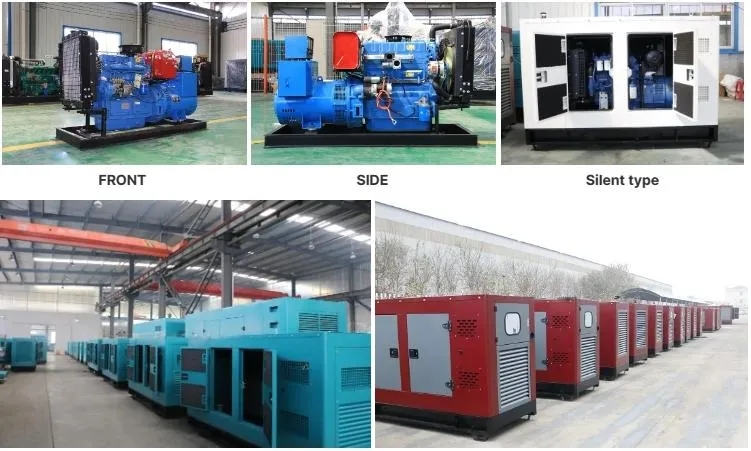Introduction
Diesel generators play a crucial role in providing backup power in various industries, commercial establishments, and residential settings. However, one of the challenges faced by diesel generators is their performance in low-temperature conditions. When temperatures drop below freezing, diesel fuel can thicken, affecting the generator's efficiency and reliability. In this article, we will explore the impact of low temperatures on diesel generators and discuss strategies to optimize their performance in cold weather conditions.
Understanding the Effects of Low Temperatures on Diesel Generators
Low temperatures can have a significant impact on the performance of diesel generators. One of the primary concerns is the thickening of diesel fuel, which can lead to difficulties in starting the generator and reduced fuel efficiency. Cold weather can also affect the viscosity of lubricating oil, making it harder for the engine to operate smoothly. In addition, low temperatures can cause the batteries to lose their charge more quickly, further complicating the starting process.
Another important factor to consider is the impact of cold weather on the engine's combustion process. Diesel engines rely on compression ignition, and in low temperatures, the air-fuel mixture may not reach the required temperature for efficient combustion. This can result in incomplete combustion, leading to higher emissions, reduced power output, and potential damage to the engine components.
Strategies for Optimizing Diesel Generators for Low-Temperature Operation
To ensure reliable performance of diesel generators in low-temperature conditions, several strategies can be implemented to mitigate the effects of cold weather. These strategies focus on fuel, lubrication, starting systems, and overall engine design. Let's explore these strategies in more detail:
1. Fuel Management:
- Use winter-grade diesel fuel: Winter-grade diesel fuel is specially formulated to prevent thickening in cold temperatures. It has a lower cloud point and better cold flow properties, making it suitable for use in freezing conditions.
- Add fuel additives: Fuel additives can improve the cold flow properties of diesel fuel by preventing wax formation and improving fluidity. Anti-gel additives are particularly effective in preventing fuel thickening in low temperatures.
2. Lubrication System:
- Use low-viscosity lubricating oil: Switching to a low-viscosity lubricating oil in cold weather can help improve the flow properties and ensure proper lubrication of engine components. Consult the manufacturer's recommendations for the appropriate oil viscosity for low-temperature operation.
- Install engine block heaters: Engine block heaters can help preheat the engine block and lubricating oil, reducing the strain on the engine during startup in cold weather. This can improve the overall efficiency and longevity of the generator.
3. Starting Systems:
- Install battery warmers: Battery warmers can help maintain the optimal temperature of the batteries, ensuring they retain their charge and provide sufficient power for starting the generator in cold weather.
- Use glow plugs or grid heaters: Glow plugs or grid heaters can preheat the combustion chamber, aiding in the ignition process and promoting smoother engine startup in low temperatures.
4. Engine Design:
- Insulate the generator enclosure: Proper insulation of the generator enclosure can help retain heat generated during operation and prevent excessive heat loss in cold weather. This can improve the overall efficiency of the generator and protect it from the harsh effects of low temperatures.
- Consider https://www.lkpowerplant.com/industrial-diesel-generator-for-sale-in-bulk/ -weather packages: Some manufacturers offer cold-weather packages that include features such as coolant heaters, fuel heaters, and battery warmers to optimize the generator's performance in freezing conditions.

Conclusion
Optimizing diesel generators for efficient operation in low-temperature conditions is essential to ensure reliable backup power supply when needed. By implementing strategies such as using winter-grade fuel, maintaining the lubrication system, enhancing the starting systems, and considering cold-weather packages, generator operators can mitigate the challenges posed by cold weather and maximize the performance and longevity of their equipment. Proper maintenance and proactive measures are key to overcoming the effects of low temperatures on diesel generators and ensuring they remain operational and dependable in all weather conditions.
